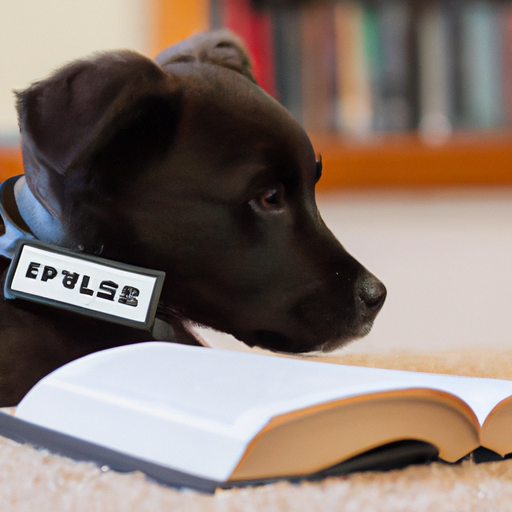Raising a puppy is a rewarding, though sometimes challenging, endeavor. One common obstacle that new pet parents encounter is excessive barking. It’s natural for puppies to bark, but this behavior can become problematic if it’s not properly managed. Fortunately, there are effective strategies to help you train your puppy not to bark excessively.
Understanding Why Puppies Bark
Before you can effectively train your puppy not to bark, you need to understand why they are barking in the first place. Puppies bark for a variety of reasons.
- Attention seeking: Puppies may bark when they want something, such as food, playtime, or your attention.
- Fear or anxiety: Puppies may bark when they are scared or anxious about something.
- Boredom: If a puppy is left alone for long periods, they may start barking out of boredom.
- Alerting or warning: Puppies will often bark to alert you to something unusual or potentially dangerous.
Training Techniques for Preventing Excessive Barking
Once you understand why your puppy is barking, you can use the following techniques to train them.
Positive Reinforcement
Positive reinforcement involves rewarding your puppy for good behavior. This can be done by giving them treats, praise, or toys.
- Step 1: Wait for your puppy to stop barking.
- Step 2: Once they are quiet, reward them with a treat or praise.
- Step 3: Repeat these steps consistently until your puppy learns that being quiet leads to rewards.
Redirection
Redirecting your puppy’s attention can also be effective. This involves distracting them when they start to bark.
- Step 1: As soon as your puppy starts barking, redirect their attention to a toy or activity.
- Step 2: Reward your puppy when they stop barking and focus on the toy or activity.
- Step 3: Repeat this process until your puppy learns that barking is not a desirable behavior.
Ignoring the Barking
This technique involves ignoring your puppy when they bark for attention.
- Step 1: When your puppy starts barking, turn away and ignore them.
- Step 2: Once they stop barking, reward them with attention or a treat.
- Step 3: Repeat these steps until your puppy learns that barking doesn’t get your attention.
Teaching the “Quiet” Command
Teaching your puppy a command to stop barking can also be helpful.
- Step 1: Wait for your puppy to start barking.
- Step 2: Once they start barking, say “Quiet” in a firm but calm voice.
- Step 3: If your puppy stops barking, reward them with a treat and praise.
- Step 4: Repeat this process until your puppy responds to the “Quiet” command reliably.
Socialization
Socializing your puppy can help reduce fear and anxiety, which can lead to less barking.
- Step 1: Introduce your puppy to a variety of people, places, and situations.
- Step 2: Reward your puppy for behaving calmly and not barking in new situations.
- Step 3: Continue to expose your puppy to new experiences to help them become more confident and less likely to bark.
Exercise
Regular exercise can help reduce barking by burning off excess energy and reducing boredom.
| Frequency | Type of Exercise | Duration |
|---|---|---|
| Daily | Walking | 30 minutes – 1 hour |
| Daily | Playtime (Fetch, Tug-of-war) | 15 minutes – 30 minutes |
| Weekly | Dog park visit | 1 hour – 2 hours |
Professional Help
If you’re struggling to manage your puppy’s barking despite trying these techniques, it may be worth seeking professional help. A professional dog trainer or behaviorist can provide personalized training and advice.
FAQ
Q: How long does it take to train a puppy not to bark?
A: The length of time it takes can vary greatly depending on the puppy and the techniques used. Consistency is key in training, so be patient and persistent.
Q: Is it normal for puppies to bark a lot?
A: Yes, it’s normal for puppies to bark. However, excessive barking can become a problem and should be addressed.
Q: Can I use a bark collar to train my puppy not to bark?
A: While bark collars can be effective, they should be used as a last resort. It’s generally better to use positive reinforcement techniques to train your puppy not to bark.
Q: Why is my puppy barking at night?
A: Your puppy might be barking at night due to fear, hunger, or the need to go to the bathroom. Try to address these needs to reduce nighttime barking.
Q: Should I punish my puppy for barking?
A: No, punishment can actually make the problem worse. It’s better to focus on rewarding good behavior and using positive reinforcement techniques.



